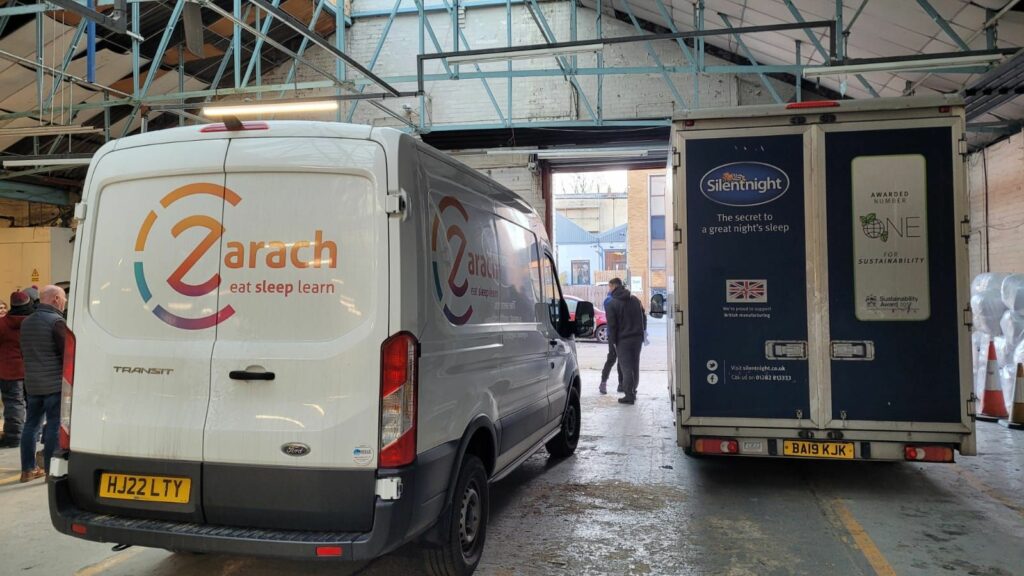Angela Moran, ESG Director at Silentnight, believes sustainability does not just stop with environmental commitments. It should also include social impact, ensuring businesses are not only doing right by the planet but their people and communities too.

Businesses across the UK are increasingly more comfortable with the idea of environmental sustainability forming the backbone of their ESG plans. But it is also vital that social impact is afforded a similar level of attention.
The E in ESG has got the most attention in recent years, even more so as the net zero transition rises up the agenda in media and political circles. Yet this should not take away from social focuses.
In fact, when incorporated in tandem, social and environmental sustainability practices allow a business to not only be viewed more favourably in the marketplace and to future employees, but also have a bigger impact on future generations when it comes to people and the planet.
While environmental sustainability is a lot easier to define, social sustainability spans a wider breadth of areas. Businesses that focus on social sustainability tend to prioritise equity between people, support of local communities, guarding human rights, enforcing social justice and improving competence.
At Silentnight, we are considering what this means for us.
In my last article, I focused solely on environmental sustainability but this piece will focus on how businesses can meet socially-sustainable commitments to support their ESG journeys.
Balancing people and planet in our sustainability offering
Achieving a balance between people and planet is crucial for businesses today. By embedding a holistic sustainability approach into their practices, companies can contribute to a more environmental and socially sustainable world.
People and communities make up a third of our strategic sustainability plan. That means it’s crucial that we understand the importance of striking a balance between our environmental commitments and social responsibilities. One of the ways we’ve been able to do this is by onboarding the United Nations Sustainability Development Goals (SDGs) into our plans.
The SDGs are a global shared blueprint for peace and prosperity for people and the planet. We have identified seven goals that, as a business, we can contribute to. These include ending poverty, promoting health and wellbeing, ensuring inclusive and quality education for all, promoting sustainable industrialisation, ensuring sustainable consumption, combating climate change and halting biodiversity loss.
These goals allow us to not only measure our progress but to also provide equal attention to our environmental and social goals.

Advocating for employees inside and outside the workplace
For us, that means ensuring diversity and inclusion sits at the heart of our wellbeing strategy.
Take, for example, analysing our demographic data, which has enabled us to introduce activities that suit each individual employees’ needs. We learnt, for example, that a significant proportion of our employees are Eastern European and Asian, for whom English is not their first language. We used this insight to redesign our new starter documentation to ensure it is user-friendly for everyone.
The health and wellbeing of our colleagues is also a central focus for the business. We’ve recently introduced weekly wellbeing days and offer health checks, lifestyle coaching and wellbeing classes to our colleagues, and trained 17 mental health first aiders.
Just knowing that a workplace has processes in place to support with mental health can have an impact on someone who is struggling. It’s not something we take for granted.
Community outreach
Supporting communities has always been important to us. Our engagement approach is twofold. Let’s consider the first half, which supports local organisations situated in and around our factory site in Barnoldswick.
For several years we have sponsored the Barnoldswick Town Football Club as well as other grassroots sporting programmes local to us. Pendleside Hospice is another local charity close to our hearts; last year we raised £8k for the Hospice and our donations help to fund specialist palliative and end-of-life care for patients and their families.
We also worked with Beyondly, a B-Corp consultancy company, to plant hundreds of trees and building protective circles around green spaces in the local area.
Using our expertise for the greater good
The second half involves the support we provide national organisations that share our mission to get the nation sleeping. Our two main charity partners are Zarach and the Sleep Charity, both of which do invaluable work with communities across the UK.
Sleep is critical for children to learn and grow and yet there are children up and down the country who don’t have a proper bed of their own. That prompted Zarach to set out on a mission to give ‘Every Head a Bed.’ We are a key partner in this campaign and since our partnership we’ve donated thousands of beds, mattresses, pillows and duvets.
In addition to this, we were also the first brand to sign up to support The Sleep Charity’s pilot programme to tackle sleep poverty in South Yorkshire. After a series of initial donations, we have now broadened our partnership and are using our brand platform and reach to amplify the organisation’s purpose and mission. As part of this, we have recently collaborated with The Sleep Charity on the production of three training modules which will be launched through our Sleep Academy platform and made available to all our employees and customers across the country.
As the ESG agenda continues to evolve and more and more businesses look at ways to improve their sustainability offering, it is incredibly important that these practices remain holistic – encompassing environmental, social and economic sustainability. Not only will this sustainability trifecta enable a business to be seen more favourably in the eyes of stakeholders, it will also maximise its positive impact. There is a human cost to doing business and this must not be forgotten.















